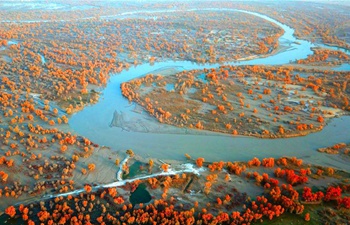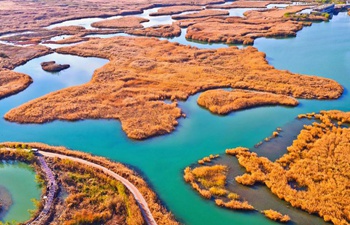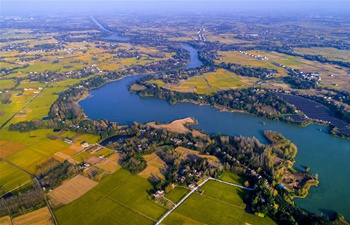OSLO, Nov. 1 (Xinhua) -- The European Union (EU) believes vessels from its member nations have the right to catch as many snow crabs around the Arctic archipelago of Svalbard as Norwegian vessels, which might lead to strong confrontations, news agency NTB reported Wednesday.
Norway, on the other hand, does not allow fishermen from the EU to catch snow crabs in the fishing zone outside Svalbard without a quota exchange agreement.
Negotiations have been held for months without positive outcome, NTB reported.
Norway has proposed to discuss the matter in connection with the regular fisheries negotiations between Norway and the EU, which are to take place in western Norwegian city of Bergen from Nov. 27 to Dec. 1.
The EU, however, wishes to keep this topic aside and hopes for a special scheme for the catching of snow crabs, NTB quoted a spokesman for the European Commission as saying.
The EU has also rejected a solution in the form of quota exchange agreement that was proposed by Norway. In that case Norway would get something in return for every single snow crab caught by EU vessels.
This year Norway has held a quota of 500 tonnes of snow crabs for possible exchange agreement, while eight times as much - 4,000 tonnes - have been handed over to Norwegian vessels.
According to the Svalbard Treaty of 1920, the archipelago is under Norwegian sovereignty, but the signatory countries have equal rights to exploit its natural resources on the land and its territorial waters.
The dispute is mainly about whether the Svalbard Treaty is in effect outside the 12-nautical-mile (22.2 km) territorial sea. Norway has established a regulated fishery in a 200-nautical-mile (370 km) zone around Svalbard.
The EU has insisted on its interpretation of the Svalbard Treaty, saying it gives all parties of the treaty equal rights to fish in the waters around Svalbard.
Norway, on the other hand, regards only the area that is 12 nautical miles from land as territorial waters. It says the rule of equal treatment does not apply in the fishing zone outside this area.
Relatively new in the area, snow crab was first observed in the Barents Sea by Russian researchers in 1996, and since then the number has continually increased.
After experts assumed that the species can eventually become a lucrative industry for Norway, the country regulated the catch three years ago, excluding the EU vessels.
However, the EU has decided to respond to the Norwegian fishing ban by unilaterally issuing 20 licenses to EU vessels. Eleven of these went to Latvia, while the rest went to Lithuania, Poland, Estonia and Spain.
Law of the Sea experts have also pointed out that the ultimate consequence of the EU's interpretation of the Svalbard Treaty could also lead to Norway having to give up oil and gas resources in the area.

















